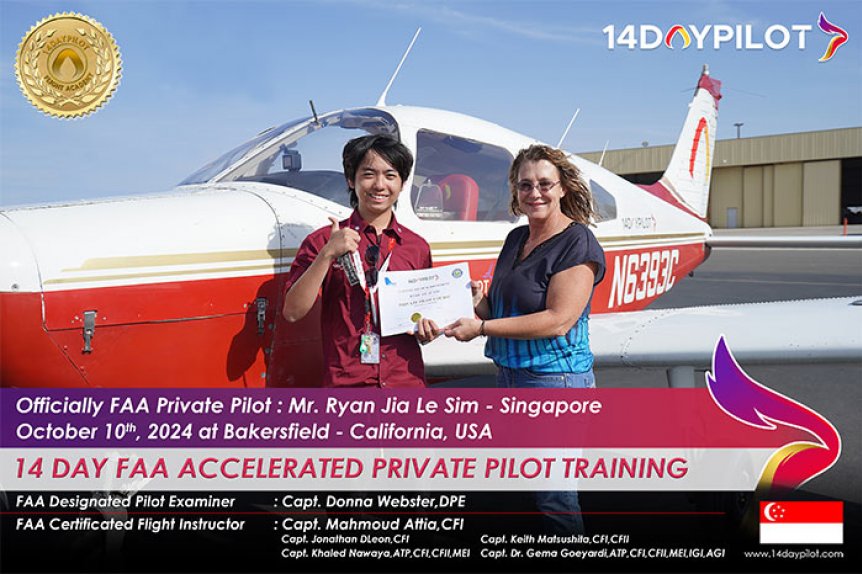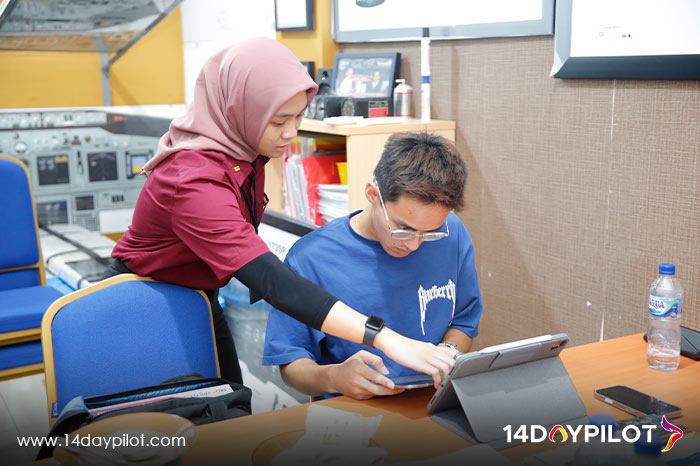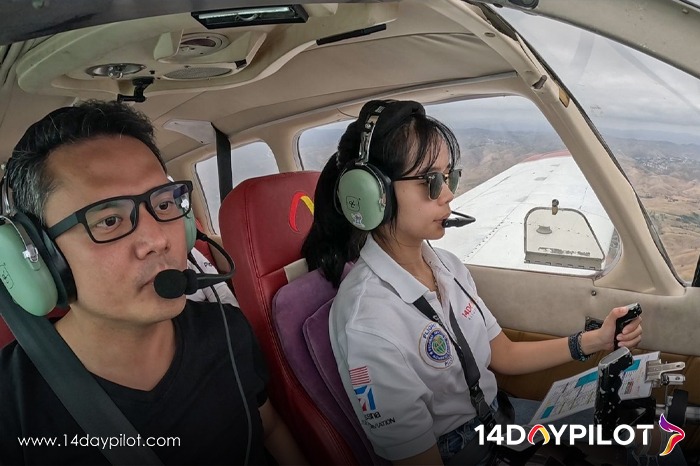
Want to boost your chances of passing? Let’s go over the most common check ride mistakes and how to prepare the right way!
Read More: FAA Check Ride Guide: Do’s and Don’ts for Success
Among FAA check rides, the Private Pilot License (PPL) and Instrument Rating (IR) check rides have the highest failure rates. Many students underestimate the check ride’s complexity, assuming strong flying skills alone will carry them through. However, common challenges, such as poor decision-making under pressure, struggling with emergency procedures, and inconsistent flight maneuvers, often lead to failure.
Since the check ride includes both an Oral Exam and a Practical Flight Test, structured preparation is key. Understanding what examiners look for and refining both knowledge and flying skills can significantly improve your chances of passing on the first attempt.
Many students find the oral exam challenging because they focus on memorizing answers rather than truly understanding the concepts. However, Designated Pilot Examiners (DPEs) don’t just test recall, they present real-world scenarios and expect pilots to explain their decisions logically.
To help students succeed, 14DAYPILOT’s Pass Oral Exam System (POES) is designed to build a deep understanding of scenario-based questions. By mastering this approach, students gain the confidence to answer effectively, significantly improving their oral exam performance.
Examiners assess flight planning skills, including weight and balance calculations, route planning, and weather analysis. Incomplete preparation can lead to failure.
Students relying too much on autopilot and GPS may struggle if the examiner disables these aids. Pilots must demonstrate manual navigation and situational awareness.
A check ride evaluates how well a pilot handles pressure. Hesitation or ineffective communication can indicate a lack of real-world readiness.
Common failures include stalls, slow flight, steep turns, and landings. Inconsistent performance in these maneuvers can result in a retest.
Read More: Inside Air Traffic Control: What New Pilots Should Know

14DAYPILOT Student Undergoing POES
(Source Image: Documentation by 14DAYPILOT)
Want to ace your check ride on the first attempt? Proper preparation is the key! By focusing on essential strategies, like mastering scenario based questions, refining flight maneuvers, and training under real-world conditions, you can boost your confidence and performance. Here’s how to prepare like a pro and increase your chances of success.
DPEs evaluate a pilot’s ability to apply knowledge in real-world situations. 14DAYPILOT’s POES prepares students for these scenario-based questions, leading to a high passing rate.
Practicing maneuvers at various altitudes, airspeeds, and weather conditions enhances adaptability and precision.
Guidance from experienced instructors helps pinpoint weaknesses and improve both knowledge and flying skills. 14DAYPILOT’s structured training program ensures students are fully prepared.
Practicing engine failures, electrical malfunctions, and lost communications in a simulator builds muscle memory, improving reaction time in real flight situations.
Combining oral exam study, maneuver practice, and mock check rides ensures balanced preparation and reduces last-minute stress.

Student Training for Checkride Preparation
(Source Image: Documentation by 14DAYPILOT)
Want to avoid common mistakes and pass your check ride smoothly? Success isn’t just about flying skills, it’s about preparation, mindset, and strategy. Follow these key steps to ensure you're fully ready for the big day.
Fatigue affects memory recall and decision-making. A well-rested mind enhances performance.
Students must have all required documents:
Pilot logbook with endorsements
Knowledge test results
Government-issued ID (ex: passport)
Aircraft maintenance records
Other necessary documents related to licenses/rating applications that the student is applying for (ex: IFR applicant attending the checkride with GPS equipped airplane will require to bring the GPS supplement manual)
DPE Fee
Confidence comes from preparation, but overconfidence leads to mistakes. A composed and professional attitude improves examiner perception.
DPEs are not trying to fail you, they assess whether you meet FAA standards. Thinking of the check ride as a learning experience reduces stress.
Anticipating what comes next, navigation, altitude adjustments, and traffic management, demonstrates strong command over the flight.
Read More: How Pilots Use Weather Forecasts to Overcome Challenges
Many students wonder, "How hard is the check ride?" The answer depends on your preparation. The check ride isn’t designed to trick you, it evaluates your ability to fly safely and make sound decisions. Pilots who train under a structured system like 14DAYPILOT’s program often find the process much smoother.
Passing the FAA check ride requires thorough preparation and confidence. Many failures come from avoidable mistakes, but with the right training, success is within reach.
At 14DAYPILOT Flight Academy, our Pass Oral Exam System (POES) and structured accelerated flight training help students master scenario-based questions and flight maneuvers & procedures. With consistent practice and expert guidance, you are increasing your chance to pass on the first attempt!
Prepare smart, stay confident, and trust the process. Your aviation career starts here!

Passing the FAA check ride is a huge milestone for any pilot. But many students struggle with check ride preparation, making avoidable mistakes that lead to failure. At 14DAYPILOT Flight Academy, we provide structured training, including the Pass Oral Exam System (POES), to help students confidently tackle scenario-based questions from the Designated Pilot Examiner (DPE).
Want to boost your chances of passing? Let’s go over the most common check ride mistakes and how to prepare the right way!
Read More: FAA Check Ride Guide: Do’s and Don’ts for Success
Among FAA check rides, the Private Pilot License (PPL) and Instrument Rating (IR) check rides have the highest failure rates. Many students underestimate the check ride’s complexity, assuming strong flying skills alone will carry them through. However, common challenges, such as poor decision-making under pressure, struggling with emergency procedures, and inconsistent flight maneuvers, often lead to failure.
Since the check ride includes both an Oral Exam and a Practical Flight Test, structured preparation is key. Understanding what examiners look for and refining both knowledge and flying skills can significantly improve your chances of passing on the first attempt.
Many students find the oral exam challenging because they focus on memorizing answers rather than truly understanding the concepts. However, Designated Pilot Examiners (DPEs) don’t just test recall, they present real-world scenarios and expect pilots to explain their decisions logically.
To help students succeed, 14DAYPILOT’s Pass Oral Exam System (POES) is designed to build a deep understanding of scenario-based questions. By mastering this approach, students gain the confidence to answer effectively, significantly improving their oral exam performance.
Examiners assess flight planning skills, including weight and balance calculations, route planning, and weather analysis. Incomplete preparation can lead to failure.
Students relying too much on autopilot and GPS may struggle if the examiner disables these aids. Pilots must demonstrate manual navigation and situational awareness.
A check ride evaluates how well a pilot handles pressure. Hesitation or ineffective communication can indicate a lack of real-world readiness.
Common failures include stalls, slow flight, steep turns, and landings. Inconsistent performance in these maneuvers can result in a retest.
Read More: Inside Air Traffic Control: What New Pilots Should Know

14DAYPILOT Student Undergoing POES
(Source Image: Documentation by 14DAYPILOT)
Want to ace your check ride on the first attempt? Proper preparation is the key! By focusing on essential strategies, like mastering scenario based questions, refining flight maneuvers, and training under real-world conditions, you can boost your confidence and performance. Here’s how to prepare like a pro and increase your chances of success.
DPEs evaluate a pilot’s ability to apply knowledge in real-world situations. 14DAYPILOT’s POES prepares students for these scenario-based questions, leading to a high passing rate.
Practicing maneuvers at various altitudes, airspeeds, and weather conditions enhances adaptability and precision.
Guidance from experienced instructors helps pinpoint weaknesses and improve both knowledge and flying skills. 14DAYPILOT’s structured training program ensures students are fully prepared.
Practicing engine failures, electrical malfunctions, and lost communications in a simulator builds muscle memory, improving reaction time in real flight situations.
Combining oral exam study, maneuver practice, and mock check rides ensures balanced preparation and reduces last-minute stress.

Student Training for Checkride Preparation
(Source Image: Documentation by 14DAYPILOT)
Want to avoid common mistakes and pass your check ride smoothly? Success isn’t just about flying skills, it’s about preparation, mindset, and strategy. Follow these key steps to ensure you're fully ready for the big day.
Fatigue affects memory recall and decision-making. A well-rested mind enhances performance.
Students must have all required documents:
Pilot logbook with endorsements
Knowledge test results
Government-issued ID (ex: passport)
Aircraft maintenance records
Other necessary documents related to licenses/rating applications that the student is applying for (ex: IFR applicant attending the checkride with GPS equipped airplane will require to bring the GPS supplement manual)
DPE Fee
Confidence comes from preparation, but overconfidence leads to mistakes. A composed and professional attitude improves examiner perception.
DPEs are not trying to fail you, they assess whether you meet FAA standards. Thinking of the check ride as a learning experience reduces stress.
Anticipating what comes next, navigation, altitude adjustments, and traffic management, demonstrates strong command over the flight.
Read More: How Pilots Use Weather Forecasts to Overcome Challenges
Many students wonder, "How hard is the check ride?" The answer depends on your preparation. The check ride isn’t designed to trick you, it evaluates your ability to fly safely and make sound decisions. Pilots who train under a structured system like 14DAYPILOT’s program often find the process much smoother.
Passing the FAA check ride requires thorough preparation and confidence. Many failures come from avoidable mistakes, but with the right training, success is within reach.
At 14DAYPILOT Flight Academy, our Pass Oral Exam System (POES) and structured accelerated flight training help students master scenario-based questions and flight maneuvers & procedures. With consistent practice and expert guidance, you are increasing your chance to pass on the first attempt!
Prepare smart, stay confident, and trust the process. Your aviation career starts here!
Hawra Tustari is an active aviation blogger who has high interest and expectations for the aviation industry. She is also an FAA Private Pilot who currently on a training to upgrade her licenses. Always up to date with the latest aviation news, Hawra aims to provide the best content on our website to help all pilots alike. We aim to provide flight training guidance and with information related to flying school materials and tips involved how to pass the check ride for all students.
Hawra Tustari is an active aviation blogger who has high interest and expectations for the aviation industry. She is also an FAA Private Pilot who currently on a training to upgrade her licenses. Always up to date with the latest aviation news, Hawra aims to provide the best content on our website to help all pilots alike. We aim to provide flight training guidance and with information related to flying school materials and tips involved how to pass the check ride for all students.